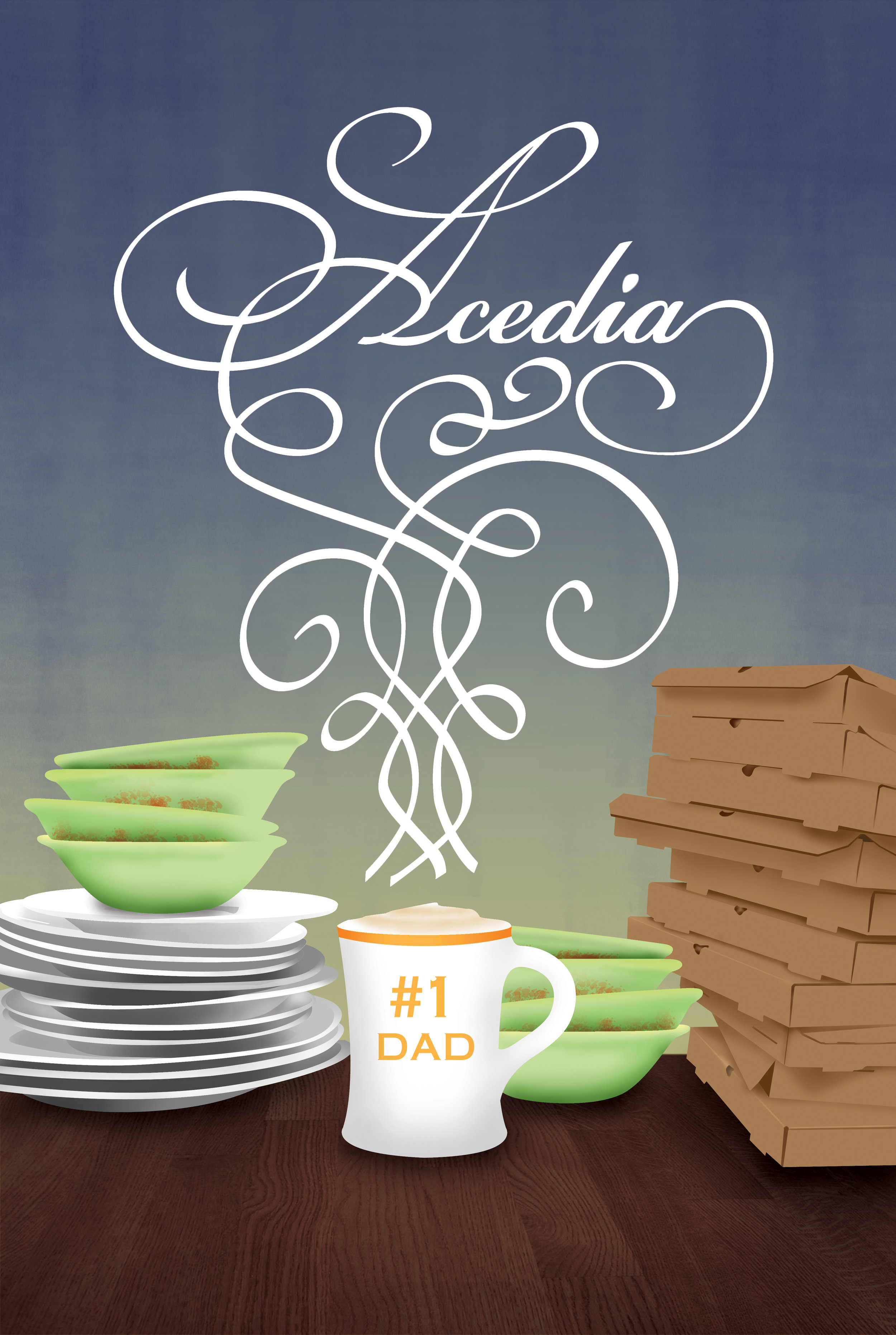Seven
Our possessions tell the tales of who we are, and the sum of our existence can be seen by the effect our presences leave on the world. With this idea in mind, I began a collaboration to examine age-old ideas of what makes humans evil as represented through nontraditional interpretations of the seven deadly sins dressed in contemporary stories, places, and items. In collaboration with a writer, our work resulted in a book. While the writer wrote about troubled men, I created portraits of these characters using illustrations of objects they are associated with.
This concept is founded upon the idea that the seven vices are timeless; they are always discoverable within society should one look close enough. Methods and techniques from the past and the present were used to explore this idea. The adaptation of letter forms from the 19th century, the technique of hand binding the books, and the use of haiku to tell the stories represent the past. Digital illustrations, stories about present-day men, and illustrations of present-day objects represent the contemporary age.
The use of Latin names for the vices probes the abstract concept of words. The Latin names of the deadly sins are historic shells that first contained their meanings. Upon the death of Latin, the ideas of these sins found new vessels in other words from other languages and therefore continue to exist. Although a language may die, as long as a concept continues to be relevant, it lives on and is accommodated in surviving languages. The sins were born in a civilization before our own, wrapped in a different language and a different way of life. Although that way of life is long gone, the concept of the sins stays resilient, finding value and significance in our own language and society.
Although great sins are reprehensible failures and are not beneficial to society, they grow from seeds of basic human wants; the monsters that men become still have human cores. It is easy to vilify a person and forget that there are simple human motivations which result in their actions. It is easy to consider them anathema and deny the seeds of their desires in our own human hearts.
Lust, the sniper
he needs the pink mist
lost interest in all else
death brings his dark joy
eager for the kill
placing his squad in danger
partner’s gruesome death
removed from duty
yet his passions still hungers
his death is divine
Lust’s passion will be served; it demands, it militates, it tyrannizes. —Marquis de Sade
Envy, the actor
has given his all
worthy of the leading role
lost to another
endlessly admired
that actor so young and green
Envy’s anger seethes
the young actor dead
Envy suddenly aware
always second best
Oh, what a bitter thing it is to look into happiness through another man’s eyes. —William Shakespeare
Wrath, the preacher
seeing only sin
he preaches condemnation
a battle for souls
wants divine crusade
inspires violent action
he cannot forgive
spitting vitriol
heart crushed beneath his furor
killed by his anger
Anger blows out the lamp of the mind. —Robert G. Ingersoll
Gluttony, the consumer
always is informed
owns all the newest tech toys
has all that you want
hundreds of movies
purchased in each new format
he has not watched half
new wrapped media
bought to show that he owns them
yet never wanted
Gluttony is an emotional escape, a sign something is eating us. —Peter De Vries
Greed, the quarterback
had a great season
fighting for a new contract
always wanting more
worth only the best
this team cannot pay the price
another team can
betraying his fans
friends and teammates left behind
alone with his cash
Possessions are usually diminished by possession.
—Friedrich Nietzsche
Sloth, the father
despair of wife’s death
retreat from life and burden
lost in a false world
children malnourished
filthy home brimming with trash
no paychecks coming
social services
it is really for the best
Sloth is alone now
We excuse our sloth under the pretext of difficulty.
—Quintilian
Pride, the doctor
the foolish patient
he doubts the diagnosis
Pride looses patience
convinced otherwise
patient goes to surgery
Pride’s procedure fails
patient is at fault
his arguments blinded Pride
now an amputee
I do not care so much what I am to others as I care what I am to myself. —Michel de Montaigne









